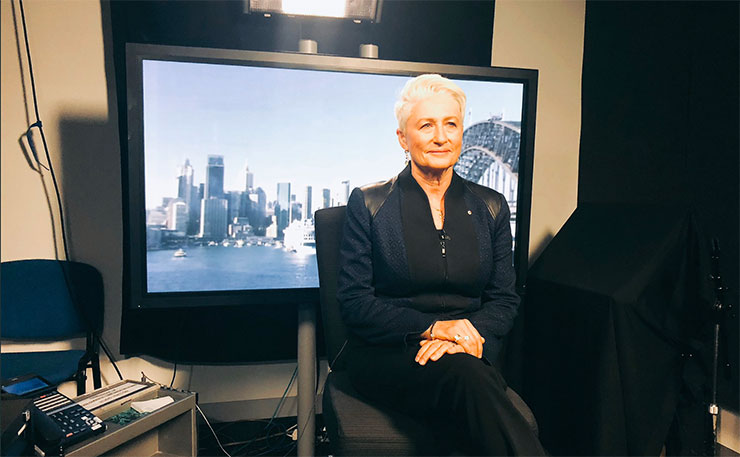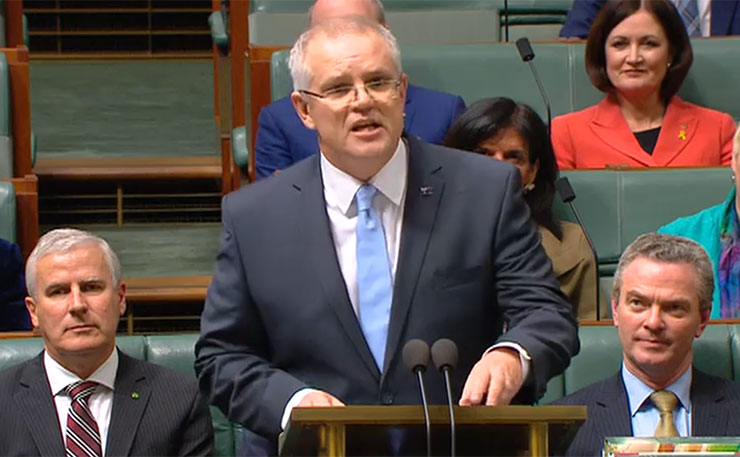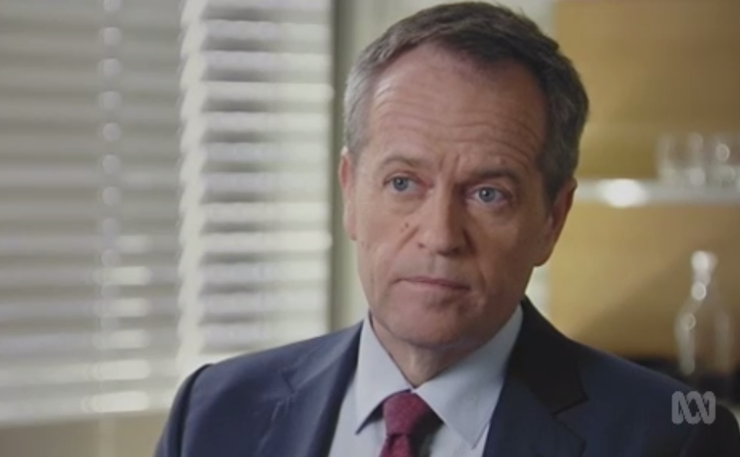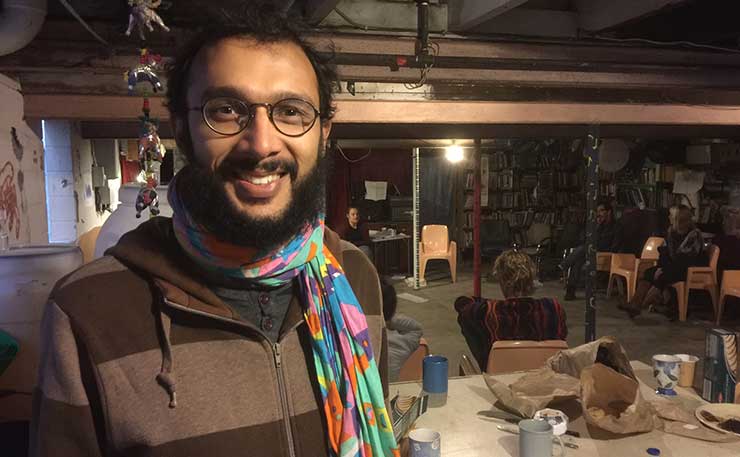The risk of the result in the Wentworth by-election is that voters will be distracted from the real cause of their woes, and it’s not really the major parties, writes Jonathan Sri.
A lot of people around the country – myself included – have been psyched to see the Liberals lose the federal seat of Wentworth to Independent Kerryn Phelps (even the name of the electorate sounds posh doesn’t it?).
For anyone who’s hungry for big changes to our political system, it’s empowering to see an underdog thump the major parties. Whenever a non-major candidate gets a massive swing in a high-profile contest, it’s another valuable and much-needed reminder to voters around the country that they don’t have to settle for the Labor-Liberal duopoly.
However as Helen Razer writes, Phelps isn’t really that much of an underdog, and she certainly isn’t here to shake up the system.
Phelps’s win obviously carries some pretty significant ramifications for the Morrison government, and will hopefully catalyse some positive shifts on issues like climate change and refugee rights in the lead-up to the next federal election. But for me, the result also raises interesting questions about where our democracy might be headed in the long-term.
At times like this, lots of commentators will be piling on to interpret the Phelps win in whatever way serves their own agenda and reinforces their own pre-conceptions. Personally, I think we should be cautious and sceptical of drawing general conclusions from Wentworth about the trajectory of Australian politics as a whole, or using the result as evidence of any particular broader trend. This was a unique by-election with a lot of unusual variables. As far as I’m concerned, Wentworth doesn’t actually prove anything.

For a while now, many on the so-called left have warned that the fallout of neoliberalism and declining faith in the major political parties could result in a lurch to the hard-right, with people who’ve been screwed over by capitalism manipulated into embracing xenophobia and fascism. The other possibility is that a progressive political movement will articulate a bold policy platform that diagnoses the problems of neoliberalism and speaks to frustrated voters’ immediate material concerns by redistributing wealth away from the top 1% and investing heavily in public services.
But Wentworth makes me wonder whether another path might in fact be more likely: Rather than a radical shift to the left or right, what if the millions of Australians who are extremely frustrated with the major parties simply start electing more ‘sensible centre’ independents, ignoring and delaying the push for more substantial changes to our democracy?
See there’s nothing particularly transformative or disruptive about Kerryn Phelps’s values or policy platform. She still sits very comfortably within Australia’s ‘elite’ and ‘establishment’ circles. She wants ‘something’ done about climate change (as long as it doesn’t interfere with business profitability) and she doesn’t like refugee kids in offshore detention, but she’s definitely not going to be calling for the dismantling of capitalism or for compensating First Peoples for the theft of their land. There’s an obvious ring of truth to the Betoota Advocate’s Sunday headline “Wentworth Voters Send Strong Message To Liberals By Voting In White Middle-Aged Doctor.”
Nothing Phelps has said so far seems to indicate a willingness to critically examine the fundamental structure of our parliamentary or economic systems. Wentworth is an especially privileged electorate where most voters have a strong interest in maintaining the economic status quo, so perhaps this isn’t surprising. But other independent MPs like Andrew Wilkie and Cathy McGowan, who both cultivate reasonably progressive images, have also enjoyed strong support and tapped into discontent with the overall political system, without actually questioning its fundamentals. The same could arguably be said of the Reason Party (formerly the Sex Party) and Nick Xenophon’s Centre Alliance Party.
The problem with our political system is not simply the two major parties. Ultimately it’s not even the fact that big corporations are buying influence with political donations. The root of the problem is the hierarchical, adversarial nature of representative parliamentary democracy itself, and the bureaucratised, centralised, top-down style of government that accompanies it.
Generally speaking, the kinds of people who will be best placed to win seats as independents in the current electoral system will not be so different in terms of wealth, life experiences and world views from the kinds of people who currently run our country.

A parliament comprised mostly of independent MPs and ‘centrist’ minor parties who are more responsive to their electorate and more difficult for vested corporate interests to manipulate would definitely be a marked improvement from what we have at the moment. But when each MP represents big electorates of 100,000+ voters, and are largely still drinking the neoliberal Kool-Aid, most of the problems we see within our current political system are likely to remain in slightly different forms.
A trend towards electing more independents of the Kerryn Phelps mould – people who rightly attack the major parties’ bullshit but who also don’t see anything fundamentally wrong with society as a whole – might actually serve as a circuit breaker or pressure relief valve, delaying or de-escalating the urgent and necessary push for more substantive changes.
Right now, a lot of voters aren’t sure whether they’re feeling disempowered by the political system as a whole, or are just frustrated with Labor and the Liberals. Voting in establishmentarian independents might give people the false sense that they’ve done all they need to do (and can do) to respond to the failures of mainstream politics.
The bigger immediate risk is that privileged, politically-engaged electorates like Wentworth will make the astute calculation that a savvy independent is more likely to represent their interests than a major party seat-warmer, while more impoverished electorates continue to elect Labor and Liberal candidates.
This could result in a parliament where independent MPs follow the wishes of their wealthier constituencies and use their balance of power to reinforce neoliberalism, while continuing to employ anti-establishment rhetoric and making it harder for voters to diagnose the real reasons the system is failing them.
I’m not asserting that this is definitely what will happen. Like I said at the outset, I think we should resist the temptation to draw universal conclusions from one by-election. The takeaway lesson – if there is one – is that those of us who seek a more radical and fundamental transformation of our political and economic systems, and of our society as a whole, should probably resist the temptation to simply heap all the blame on Labor and the Liberals.

There’s a big difference between simply saying “the major parties are fucked” and saying “the whole system is fucked.” The former message creates space for all manner of capitalist independents and ‘centrist’ groupings to win seats, but doesn’t necessarily solve anything long-term.
This might all seem obvious to some, but the distinction is important for minor parties like the Greens, who have been saying for years that neither Labor nor the Liberals care about ordinary people, but still can’t increase their national primary vote beyond the low teens. We must continually highlight the failings of our parliamentary system as a whole, and argue strongly for structural changes that give ordinary people more direct power, rather than taking the easier road of simply saying “elect us because the two majors are awful and we’re not”.
With so many balls in the air, no-one can predict with confidence where our political system is heading. But Wentworth reminds us that we could foreseeably see more and more Labor and Liberal seats won by pro-status quo independents, without anything really changing.
Donate To New Matilda
New Matilda is a small, independent media outlet. We survive through reader contributions, and never losing a lawsuit. If you got something from this article, giving something back helps us to continue speaking truth to power. Every little bit counts.




